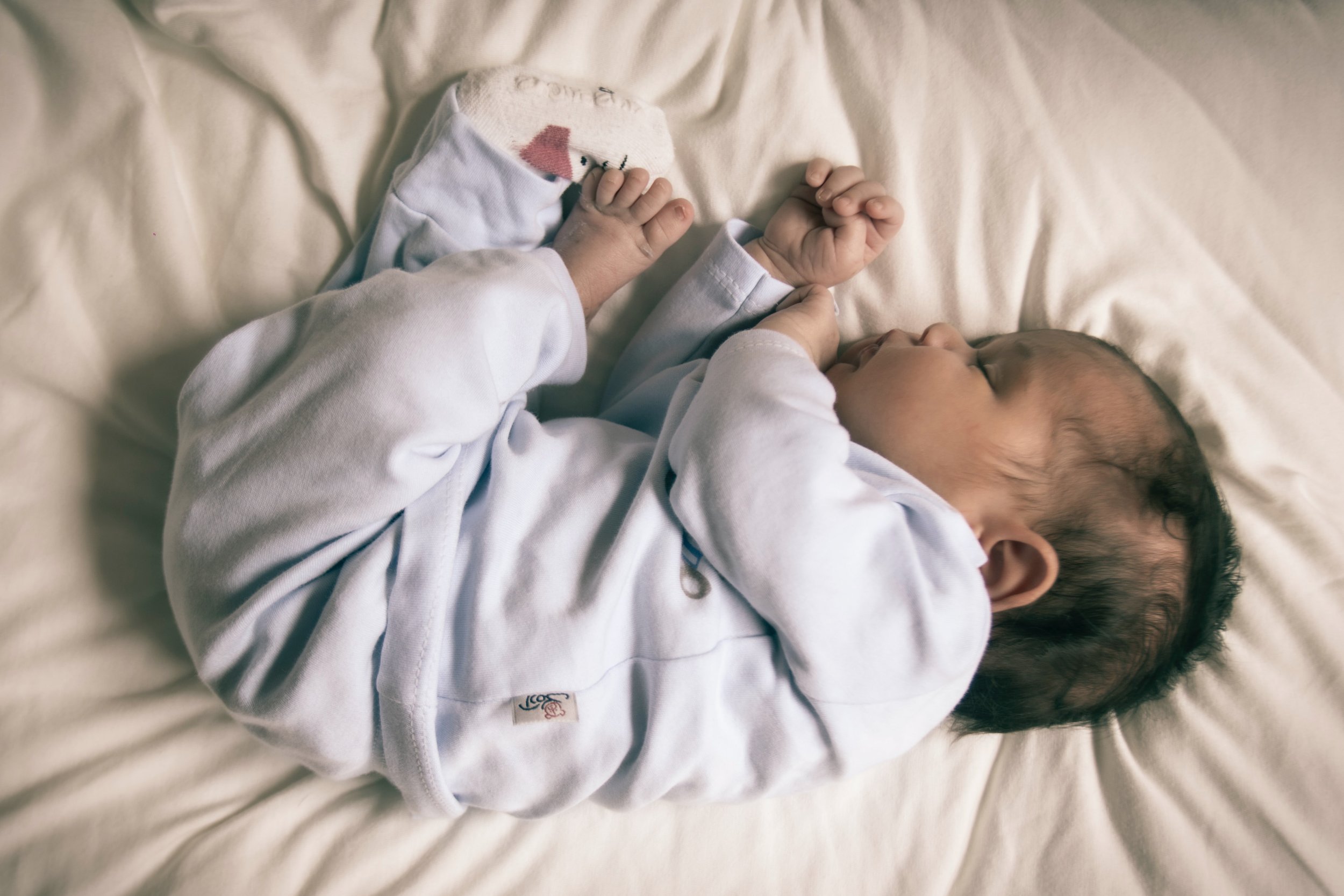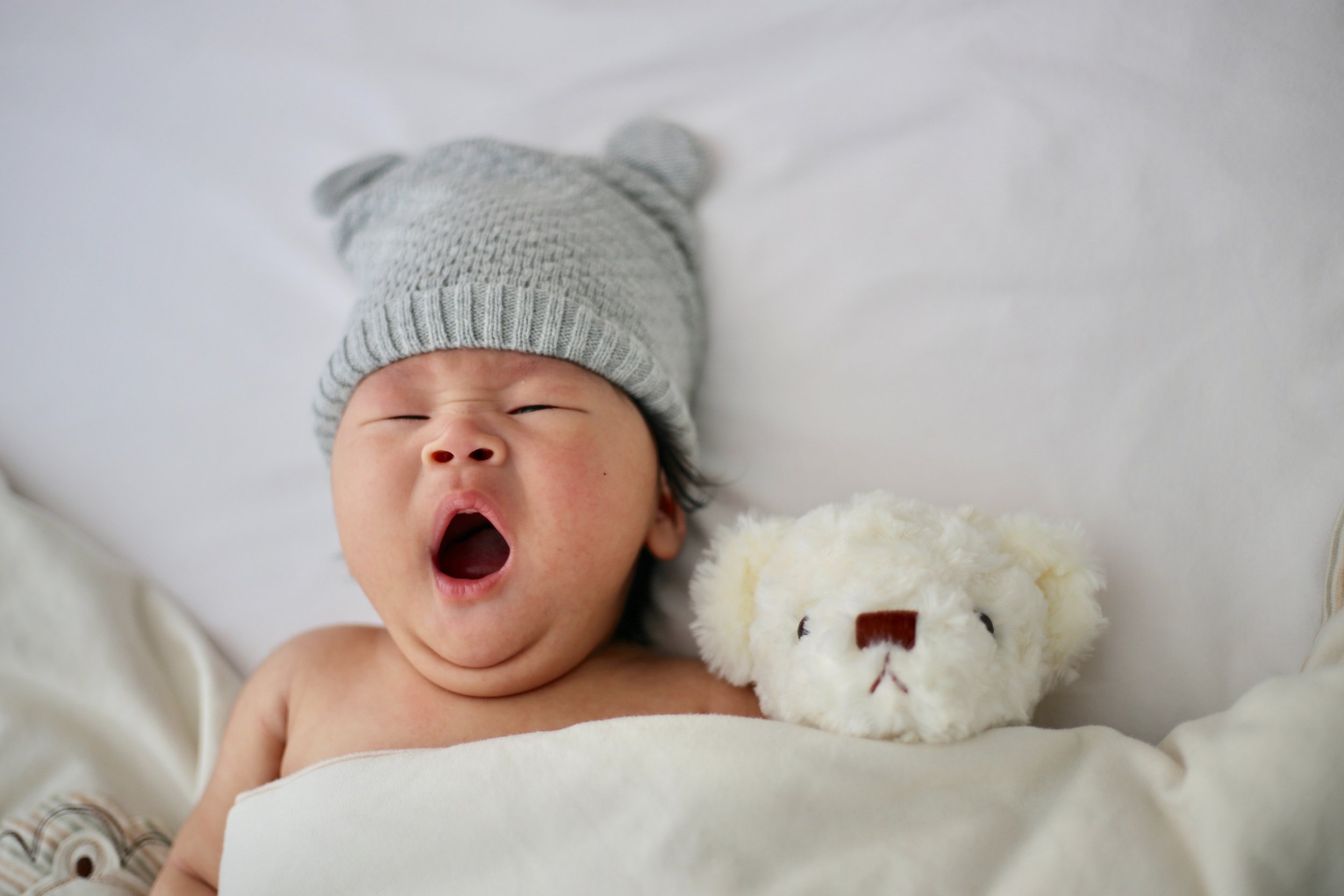Tips to get your baby sleeping through the night
Tip one : Optimal sleep environment. This may seem obvious but it is so important with helping promote that sleepy hormone in your little one. This helps send the signal to your little one it is time to rest and sleep. Here are my recommendations for the perfect sleep environment:
Dark bedroom (minimal natural light)
Dull bedroom (nothing stimulating)
Quiet bedroom (however white noise can be used to provide comfort and drown out any background house noise)
Keep the sleep space safe
Keep the bedroom at the ideal temperature ( 17-20 degrees)
Tip two: Age appropriate bedtime. Setting an age appropriate bedtime for your baby prevents them from becoming over tired or being under tired. This will allow for longer stretches of night sleep and having a set bedtime allows for your child to get the right amount of sleep for their age in a 24 hour period, especially when naps fluctuate. In the early weeks it is very normal for babies to go to bed later in the evening due to feeding and finding their cardian rhythm. Bedtime will become earlier as they become older and they have longer awake windows.
Ages newborn- 2 months bedtime 8-11pm
Ages 2-3 months bedtime 8-9pm
Ages 3 months + bedtime 6-8pm
Tip three: Consistent routine. Routine helps a child feel more secure and both a bedtime routine and daytime routine impact overnight sleep. Studies have shown that a bedtime routine helps promote a long stretch of night sleep and less night waking’s. A simple 20-30 minute bedtime routine is all that is needed. Complete the same simple steps each night and finish the routine in their bedroom. It helps to calm your little ones nervous system which makes falling asleep much easier for them.
Tip four: Avoid putting your little on to bed over tired. Over tiredness can become a vicious cycle and it is not what you want when putting your little one to bed for the night. Over tiredness causes cortisol, which is a stress hormone and causes adrenaline, which is the opposite to what you want before going putting your little one to sleep. Putting your little one to bed when they’ve had adequate day time sleep helps to allow the natural melatonin to build up ready for bedtime. The hormone melatonin is the sleepy hormone and triggers our bodies to go to sleep. You may have heard that sleep breeds sleep, which is true to some extent, by sticking to an age appropriate daytime routine with nap lengths and awake windows will help your little one becoming trapped in that overtired cycle. If they are already overtired, then extending daytime naps, adding in an additional nap and / or an early bedtime will help rectify this problem.
Tip Five: Put your little one to bed awake. Avoid putting them to bed asleep or drowsy. This gives them the opportunity to practice using those self settling skills but also allows them to become very comfortable in their own sleep space. If they wake in the night or rowse from a deep sleep in to a light sleep, they will not be panicked as they fell asleep knowing the space they were in. As opposed to falling asleep in your arms in another bedroom and waking in the night to find they are in a totally different environment. Or maybe your little one is rocked to sleep or fed to sleep in a chair with the presence of a parent and again if they wake in the night, it will be much harder for them to fall back to sleep. Babies under 4 months of age will find it harder to self settle, but this skill is learnt through practice, patience and consistency.



